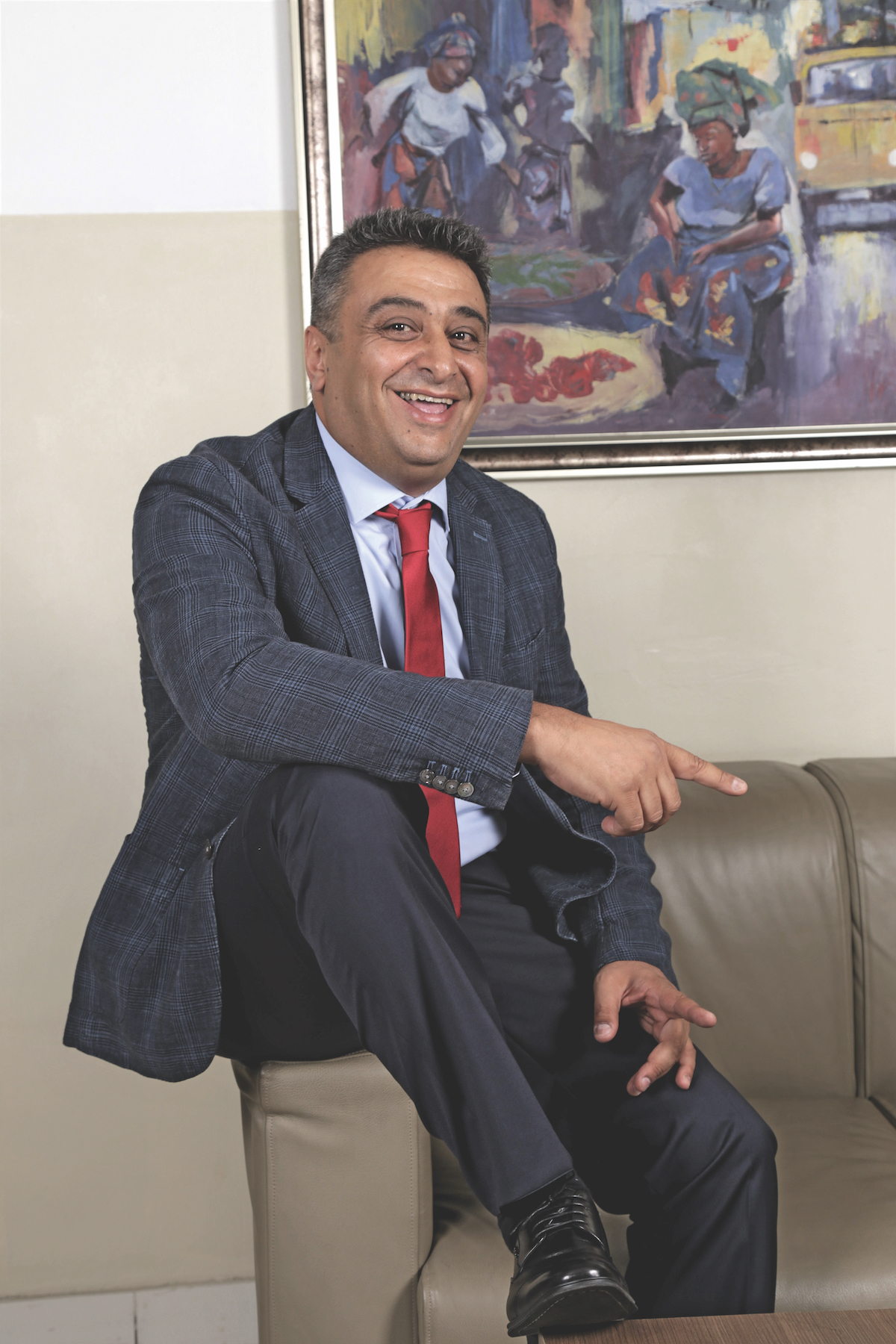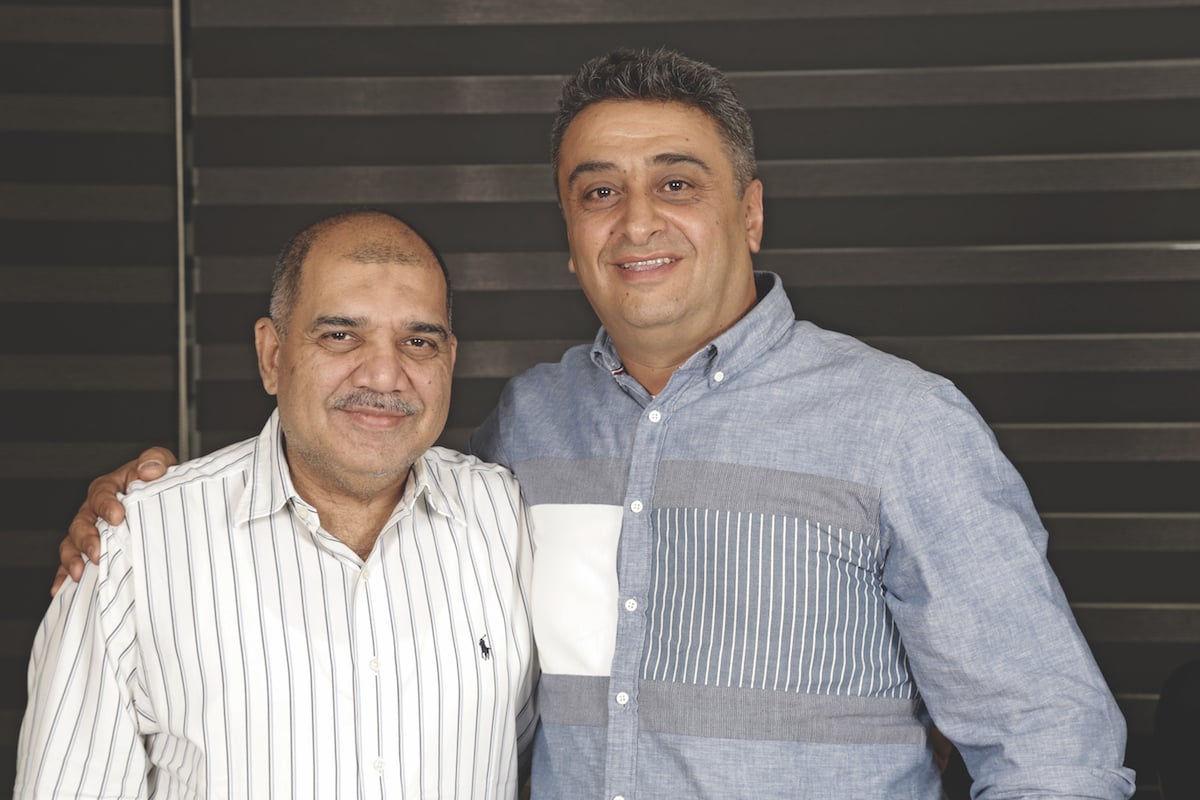There’s nothing more satisfying than the fizz of a soft drink can opening. Having spent the past decade at Nigeria’s Seven-Up Bottling Company (SBC), it’s a sound Ziad Maalouf is still not tired of. Starting as National Sales and Distribution Manager, Ziad quickly rose through the ranks to the role of COO and then Managing Director in April 2017. “These promotions came at just the right time for me to be able to take advantage of these opportunities,” he notes.
With more than 20 years’ experience in commercial, organisational leadership, strategic management and corporate finance, Ziad was exactly what the company needed to pull it out of a dire financial situation. Profits at SBC were on a steep decline in the second half of 2016 – just after Nigeria, Africa’s biggest economy, slipped into a major devaluation and FX scarcity triggered by low oil prices.

“Until 2015, we were a healthy, highly profitable company. But in 2016, we suffered a 70% devaluation in Nigeria. In the past, it was just Coca-Cola and us in the business, so whenever a devaluation happened, we both upped our prices and life went on as before,” Ziad notes. “But this time, two new soft drink brands entered the market, forcing us to decrease our prices and we began to incur heavy losses. In the month before I became managing director, we lost US$6.2 million.”
Despite having only just stepped up to the role, Ziad wasn’t afraid of a challenge. “Some people would consider it bad timing, but I saw it as the opportunity of a lifetime. Over the past two years, I’ve focused on shaving off unnecessary costs and pushing our top line through a price and cost leadership strategy. This means that we still want to be the cheapest, despite having losses, but we also need to keep our costs the lowest in the industry. I knew this journey wouldn’t be easy and it wouldn’t happen overnight, but our losses slowly reduced month by month until, in May 2018, we finally broke even.”
With its origin dating back to 1926, SBC is now one of Nigeria’s largest independent manufacturers and distributors of well-known soft drink brands including Pepsi, 7UP, Mirinda, Teem, Mountain Dew and Aquafina. Headquartered in Beirut, SBC has more than 300 distribution centres across Nigeria as well as operational bases in Tanzania, Kenya and Ghana. With a vision to become the most admired and innovative company in the country, SBC’s 3,500 employees are united by the core values of mutual trust and respect, commitment, ownership, teamwork and integrity.
Company history
Seven-Up Bottling Company draws its origins from the Lebanese Mohammed El-Khalil, who founded the business after his first visit to Nigeria in 1926. Before its diversification, the company was then known as El-Khalil Transport, one of West Africa’s largest and most successful transport companies.
On 1 October 1960, the same day Nigeria won its independence, Nigerians also experienced the birth of a soft drink giant when the first bottle of 7Up rolled out of SBC’s Ijora factory, and it’s only grown from there. In the late 1980s, SBC established two more plants in Ibadan and Ikeja, and when Pepsi International took over 7Up International in the early 1990s, SBC had the opportunity to introduce Pepsi to the Nigerian people.
Powered by people
Ziad says that at the heart of the company’s resurgence is the continuing commitment, innovation and perseverance of SBC’s workforce. “I made the difficult decision to replace our entire executive team – because I felt it wouldn’t be possible to succeed in the transformation journey without a team that shares the same vision, energy and commitment level. The new team brought a fresh and innovative mindset and they helped develop and execute the strategy we’re now cascading down throughout the business,” he explains. “If you have a highly professional and motivated team, results will always be beyond expectations.”

Ziad is investing lots of time and money into building a capability department to ensure SBC’s execution exceeds that of its competitors. “We recently created a team in charge of the talent management journey that we named ‘SABI’ – which in Nigerian means someone who is ‘in the know’ – and we gave each letter a corresponding meaning.
The ‘S’ stands for striving for success, ‘A’ for accountability, ‘B’ for bonding, and ‘I’ for innovation,” he explains. “So, the journey we’re on now is to upskill our existing staff and upgrade the team by bringing on board highly qualified Nigerian professionals to ensure we have the right capacity and resources to execute our growth strategy.
“The key pillars to success in Nigeria are deeply understanding the Nigerian culture, strongly believing in the Nigerian talents and genuinely satisfying the Nigerian hunger to learn, develop and succeed. This is my core strength that is driving success. I simply feel more Nigerian than Lebanese.”

“It’s hard to differentiate ourselves from competition in terms of number of people, marketing spend and investments, so instead we want to differentiate ourselves by the quality of our people and our best practices in every department,” Ziad notes. “We’re a flexible company that » doesn’t believe in bureaucracy, which allows decisions to be made quickly, and we’re outsourcing every department that is not core to our business. For example, we’ve outsourced our 1,000-truck fleet, and we’ve partnered with Imperial LMI Logistics to manage and streamline our warehousing efforts.”
According to Ziad, simplifying SBC’s monster operation into a more focused one was the best decision he ever made. “This was the only way forward. We now have five clear divisions: supply chain, manufacturing, commercial, human resources, and finance. Because we’re so focused on cutting costs and lowering our prices, our finance department ensures that whatever we spend pays back 10 times as much, at least,” he explains. “Across all these departments, we pursue the best practices and we aim to set international benchmarks.”
Ziad explains that through SBC’s lowest price and cost leadership strategy, the business margins will be lower in order to aggressively grow volumes and drive profitability over the next three to five years. “The name of the game for us right now is low margins, high volumes. We need to position our products right. In Nigeria, 60–70 per cent of people are living on less than US$1 per day,” he notes. “This means that if we can continue to market our product at the lowest price, we can achieve sustainable organic growth. We know what the people want.”
“If we can continue to market our product at the lowest price, we can achieve sustainable organic growth. We know what the people want.”
In conjunction with this organic growth, Ziad is also injecting innovation into SBC. “We’ll soon be launching a list of items to continue on our upward trajectory. Most of these will be affordable, low-sugar beverages, which fit our budget as well as consumer needs,” he notes. “Once this settles, we’ll also look at possible acquisitions over the next five years.”
Ziad Maalouf’s three tips for business success:
- Put the right people in place.
- Develop a unified strategy for your business.
- Execute your goals as a team.
Partnership built to last
In order to move from incurring losses to breaking even, the first department under Ziad’s microscope was SBC’s supply chain. “In the past, we used to negotiate every deal with our suppliers – they’d ask for the highest price, we’d ask for the lowest price, and we’d usually end up somewhere in the middle where neither party was fully satisfied. Now, we’ve moved away from transactional relationships in favour of transparent, long-term relationships,” he explains.
“Every aspect of the partnership is fixed, apart from the international price and the exchange rate, and we’re able to discuss the opportunities for the supplier to help reduce our costs without them losing money.”

“When it comes to sustainable business, it’s all about finding that win–win arrangement.”
To streamline this process, Ziad and his team implemented an automated reverse auction tool so different suppliers are able to bid online for SBC orders. “The offline supply chain system is fraught with preferential treatment and under-the-table deals. So, not only has this online auction tool drastically reduced our cost of goods by about 27%, but it’s also injected transparency into our supply system,” he remarks. “Our supplier code of conduct also ensures that any supplier who attempts to pay off someone at SBC will be delisted from the company.”
Ziad says this streamlined partnership system has helped SBC avoid disruption in the supply of its raw materials. “We’re paying them on time, we’re building long-term relationships and we’ve avoided massive losses in sales. I’ve made a personal effort to build solid relationships with the owners/CEOs of our supplying companies so that if we run into a problem, we’re able to talk it over, at very senior levels, with an understanding of what needs to happen on both sides,” Ziad explains.
“I’ve also established solid relationships with the banks. We were once working with 16 different banks, which went beyond giving personal attention. So, I selected four strategic banks as main partners, along with four other supporting banks. We have agreed to consolidate our business with them, and they give us the best prices and facilities. When it comes to sustainable business, it’s all about finding that win–win arrangement. We never consider banks and suppliers as external parties. They are our partners and a core pillar for the success of SBC.
“With a clear vision, a talented team and solid partnerships, I started seeing my role moving away from operations and more into strategy and people development, which is my passion. I even started allocating more time to my wonderful family, who stood by my side during the good and bad days, and silently tolerated my extremely long working hours.”
The takeover that saved Seven-Up Bottling Company
In January 2018, Seven-Up Bottling Company became a wholly owned subsidiary of its major shareholder Affelka, the investment firm of the Lebanese El-Khalil family, in a US$60 million takeover deal aimed at restructuring the struggling company.
The soft drinks bottling industry had been hit by falling demand due to weak economic
growth in Nigeria, Africa’s most populous nation, which had just emerged from a recession and a currency crisis that stifled raw material imports.
The SBC takeover deal came six years after rival Coca-Cola delisted its local bottling unitin a US$136 million buyout deal to expand the business and fend off competition.


